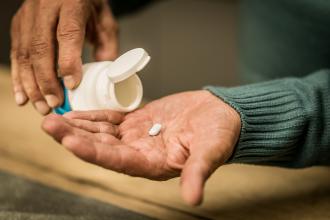Re: BC has the tools to address the drug poisoning emergency (1)
The editorial by Dr Michael Schwandt in the December issue of the BCMJ [2023;65:365-366] proposes dealing with the drug poisoning emergency by decriminalizing drugs, reducing stigma, and increasing the safe drug supply. The problem with this approach is that it looks at only one outcome, and that is to prevent drug poisoning and drug poisoning deaths. Unfortunately, there are many more issues to this complex problem.
There are enormous social costs associated with normalizing drug use. We have witnessed the ghettoization of Hastings Street in downtown Vancouver, the near extinction of Chinatown, and the open use of drug injections across the entire downtown of Vancouver. It is ironic that it is illegal to drink alcohol or smoke cigarettes in many public places when injecting opioids is legal.
Our neighbors to the south have witnessed the destruction of the downtown cores of Portland, Seattle, and San Francisco due largely to permissive drug policies. These cities are rejecting this approach and are now recriminalizing and discouraging drug use. A similar story is unfolding in Portugal.
A safe drug supply, in my view, appears to be increasing accessibility to drug use, and in some cases safe drugs are being diverted so that addicted persons can purchase fentanyl-based products.
I am concerned that we are setting a very poor example for young people by normalizing drug use. Contrary to the editorial, I want to stigmatize drug use so that it does not become an attractive lifestyle for our children, teenagers, and young adults. There are some consumer groups who defend the rights of adults who use drugs and the subsequent lifestyle of crime that supports drug use. This, in my view, is a mistake.
The current policies are simply not working, as evidenced by the persistently high rates of overdoses and deaths. It is time, in my view, to try a different approach. Already, the provincial government has reversed policies on drug use that allowed drug injections in parks and near schools.
I do not pretend to provide a comprehensive solution to the current problems, but we need a broader approach than simply supplying safe drugs to persons addicted to drugs. We need to consider the extensive social problems that are created by normalizing drug use. We certainly need more housing and treatment services. There may be a role for more coercive treatment approaches. Lifesaving approaches such as certification under the Mental Health Act need to be reviewed.
It is time for citizens to seize the agenda and to not rely on advocacy groups and so-called experts to get us out of this crisis.
—Derryck H. Smith, MD, FRCPC
Vancouver
This letter was submitted in response to “BC has the tools to address the drug poisoning emergency. Do we have the will to use them?” Read the author’s response in “Re: BC has the tools to address the drug poisoning emergency. Author replies.”
hidden
 |
| This work is licensed under a Creative Commons Attribution-NonCommercial-NoDerivatives 4.0 International License. |

